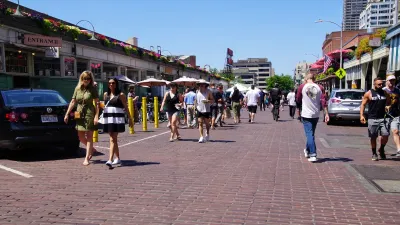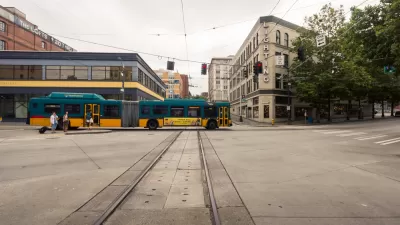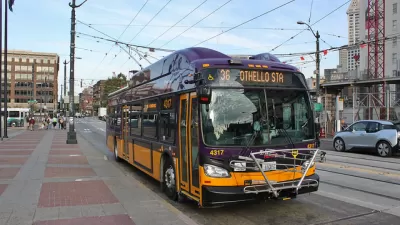The victory for homeless and very low-income transit riders is a reminder of the importance of grassroots organizing.

Last year, organizations in King County provided more than 1.4 million Metro tickets to homeless people, refugees, and other low-income people struggling to afford trips to shelters, job centers, and other crucial resources.
Metro's Human Services Ticket Program, which partially subsidizes tickets for human services agencies to distribute, launched 25 years ago after ongoing public demonstrations by the agencies and their clients. And in September, ongoing organizing once again motivated King County Council to unanimously move to strengthen the program.
Katie Wilson of Seattle's Transit Riders Union explains in the Seattle Transit Blog that rising housing costs and homelessness rates have drastically increased the need for tickets. But a cap on allocations has limited the number of tickets available, and fare increases have made even the discounted price too much for some organizations.
The problem may have continued to get worse, Wilson writes, if not for a dedicated grassroots effort to get the Council to address it. Now, Metro will raise the cap on ticket allocations and cut the price of tickets in half, as well as collaborate with other county stakeholders to fulfill "transit’s role in contributing to the social safety net for the lowest income residents."
In addition to more comprehensive local measures, Wilson turns an eye to big-picture solutions like taking on the State Legislature and integrating the region's transit system—noting:
Many of the hundreds of low-income people who have participated in struggles for affordable transit would love to take on these broader transformative issues, if only they didn’t have to be more immediately concerned about getting from A to B.
FULL STORY: Big Wins for Very Low-Income and Homeless Transit Riders

Planetizen Federal Action Tracker
A weekly monitor of how Trump’s orders and actions are impacting planners and planning in America.

DARTSpace Platform Streamlines Dallas TOD Application Process
The Dallas transit agency hopes a shorter permitting timeline will boost transit-oriented development around rail stations.

Congressman Proposes Bill to Rename DC Metro “Trump Train”
The Make Autorail Great Again Act would withhold federal funding to the system until the Washington Metropolitan Area Transit Authority (WMATA), rebrands as the Washington Metropolitan Authority for Greater Access (WMAGA).

Supreme Court Ruling in Pipeline Case Guts Federal Environmental Law
The decision limits the scope of a federal law that mandates extensive environmental impact reviews of energy, infrastructure, and transportation projects.

Texas State Bills to Defund Dallas Transit Die
DART would have seen a 30% service cut, $230M annual losses had the bills survived.

Bikeshare for the Win: Team Pedals to London Cricket Match, Beats Rivals Stuck in Traffic
While their opponents sat in gridlock, England's national cricket team hopped Lime bikes, riding to a 3-0 victory.
Urban Design for Planners 1: Software Tools
This six-course series explores essential urban design concepts using open source software and equips planners with the tools they need to participate fully in the urban design process.
Planning for Universal Design
Learn the tools for implementing Universal Design in planning regulations.
City of Mt Shasta
City of Camden Redevelopment Agency
City of Astoria
Transportation Research & Education Center (TREC) at Portland State University
US High Speed Rail Association
City of Camden Redevelopment Agency
Municipality of Princeton (NJ)





























